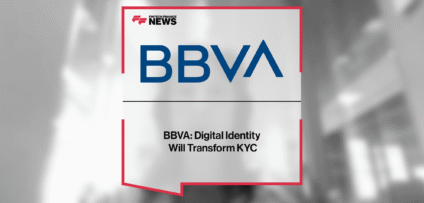Breaking News

FinTech and Coronavirus: the rise of strategic partnerships with traditional banks
Just a few months after it first made headlines, Coronavirus has sent shockwaves across the globe. Its effects have been felt in a great number of industries, with the financial services sector no exception. Whilst the pandemic has created challenges for the industry to overcome, it may also be the catalyst that encourages the rise in strategic partnerships between traditional banks and FinTechs.
Coronavirus has caused a financial shock that is now being felt by many customers of traditional banks and the need for the right financial support is greater than ever. Banks must no longer see FinTechs as just challengers, but rather as potential collaborative partners in order to effectively meet customers’ expectations in these difficult circumstances. It comes at a time when FinTechs are playing increasingly larger roles in global finance having evolved from small businesses, offering limited services to specific audiences, into serious challengers with the resources to operate at scale and provide a range of services across the finance industry.
As a result of the increased demand for support from the many who have been affected by financial insecurity, the environment created by Coronavirus suits collaboration between traditional banks and FinTechs with the latter only recently possessing the infrastructure to deal with the challenges posed. We are seeing many governments starting to encourage partnerships between traditional banks and FinTechs, in part due to FinTech’s capacity to provide the banking software needed, but also because the structure of FinTechs allows for a level of efficiency that’s difficult to achieve with traditional banking processes.
One advantage in particular favouring FinTechs is that a number of them are digital only platforms. This means that their speed of adoption into new geographical areas can be far superior to that of traditional banks. We have seen this with Revolut which was able to maximise its gains by expanding quickly into all the EEA countries, Switzerland, Canada, Singapore, the US and Australia. Other significant players in the sector will be looking at Revolut’s success, thinking that they could do the same. It wouldn’t be surprising to see some take the chance to do so, especially considering the current situation.
These partnerships would not involve radical change of direction, rather an acceleration down the path FinTechs and traditional banks were already taking. Recently, we’ve seen traditional banks increasingly utilising the models for success that FinTechs have enjoyed as part of their own offerings. This was the case, for example, with The Co-operative Bank’s partnership with Freedom Finance; by tapping into Freedom’s technology, The Co-operative Bank has been able to offer tailored loans to a wider market than previously possible. In this case, and also in many others, traditional banks are using FinTech’s tools as additions to their core offerings, rather than as part of shift in brand propositions.
This may soon change. As the pandemic comes to an end and markets start returning to normal, partnerships between incumbent banks and FinTechs may appear more attractive. In order to capitalise on improved conditions, banks would benefit from the existing technology FinTechs offer whilst also taking advantage of the talent available on the FinTech’s payroll. For FinTechs, traditional banks offer a means to both reach a wider audience, and to work on developing new services.
Of course, there would also be benefits for customers. At Freedom, we have seen many of our customers come to us having been previously rejected by a bank. Whilst the bank may not have had the ability to accurately interpret a person’s capacity to borrow, our technology does. As a result, the customer is able to secure the right loan for their needs in an affordable way.
There is huge potential here for banks as these customers come from well-defined segments; the young, those establishing themselves in the UK, the self-employed and people recovering from financial instability after an event or income shock. In traditional banks, the systems in place for making such decisions are large enough to handle millions of transactions. However a consequence of this is that with such systems loan offerings can be rather ‘one size fits all’. Unfortunately, in these scenarios, the customer who fails to meet the strict criteria will be turned down for a loan.
The true value of these partnerships is derived from the fact that many FinTechs concentrate on small improvements that then lead to industry-wide changes, such as solutions for customers with poor credit scores who are unable to secure loans. In being able to offer more personalised solutions for the customer, banks would be able to offer services to a wider audience than before.
As a result of the disruption caused by the Coronavirus, banks and FinTechs have had to take stock, reassess their growth expectations, and swiftly make plans to minimise the damaging effects of the pandemic. Whilst new business objectives are set, the key priority for all will be survival whilst ensuring that customers are supported as much as possible, through whatever means whether that is with credit relief or even deferment plans. To do so, it is now more important than ever for finance providers, to cushion their customers from any financial shock caused by Coronavirus, to improve their offerings of human support, but also technology. Doing so would provide customers with the tools to make the important financial decisions needed during a particularly challenging time.
Whilst there will certainly be obstacles to overcome for the financial services industry following the pandemic, there will also be ways of reaching wider audiences and developing new services. The chance to form strategic partnerships with traditional banks would be one way to do so and looks likely to become increasingly common in order to aid recovery following this crisis.
Brian Brodie is Group Chief Executive at Freedom Finance
- Spayce: Organic Growth, Own Tech, New Wallet Read more
- EXCLUSIVE: “Check, Check… and Check!” – Pilar Fragalà, CBI in ‘The Fintech Magazine’ Read more
- BBVA: Digital Identity Will Transform KYC Read more
- Pocket Network Is Pioneering ‘DePIN for Data’ Read more
- Kea Rolls Out Local Payouts in 85+ Currencies Read more














